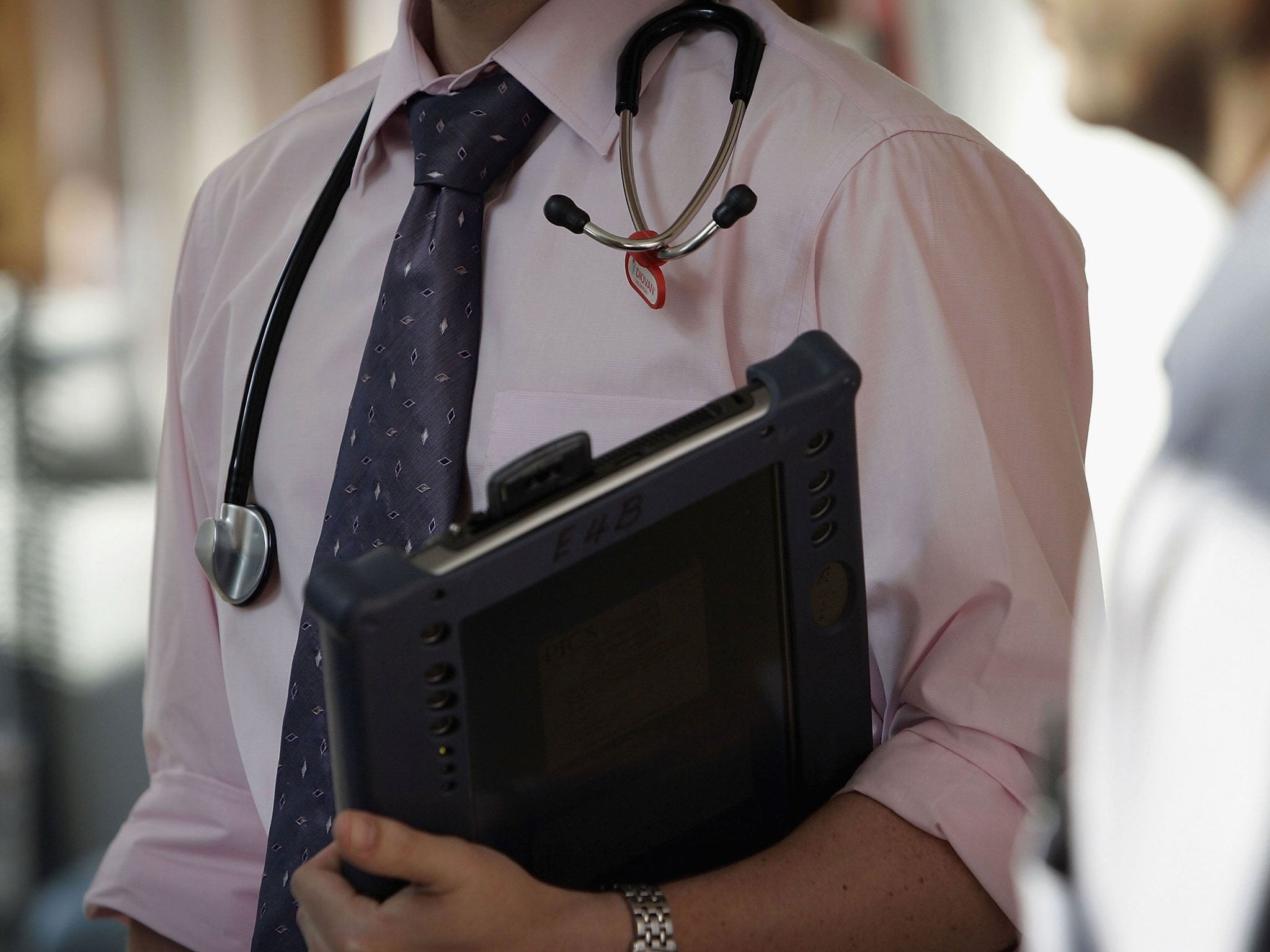Coronavirus: GPs call for action to protect ethnic minorities ahead of winter
More than 3,600 doctors could be at risk from Covid-19, according to estimates

Your support helps us to tell the story
From reproductive rights to climate change to Big Tech, The Independent is on the ground when the story is developing. Whether it's investigating the financials of Elon Musk's pro-Trump PAC or producing our latest documentary, 'The A Word', which shines a light on the American women fighting for reproductive rights, we know how important it is to parse out the facts from the messaging.
At such a critical moment in US history, we need reporters on the ground. Your donation allows us to keep sending journalists to speak to both sides of the story.
The Independent is trusted by Americans across the entire political spectrum. And unlike many other quality news outlets, we choose not to lock Americans out of our reporting and analysis with paywalls. We believe quality journalism should be available to everyone, paid for by those who can afford it.
Your support makes all the difference.The Royal College of GPs has called for action to tackle the risks posed by coronavirus to ethnic minorities and to ensure doctors and staff are kept safe this winter.
Professor Martin Marshall, head of the Royal College, said he was especially concerned for the thousands of GPs from a black and minority ethnic (Bame) background who will be on the frontline of any resurgence of the virus.
In a letter to the equalities minister, Kemi Badenoch, Prof Marshall urged the government to act on recommendations made by Professor Kevin Fenton in his report for Public Health England which highlighted Bame communities were disproportionately at risk of dying from Covid-19.
The Royal College chair told The Independent the pandemic had highlighted existing inequalities. He added: “It has certainly not been the ‘great leveller’ that some described at the beginning. This has impacted on patients, but it has also impacted on colleagues, right across the health service. In general practice, of the 12 GPs who have died, 11 were from Bame communities.
“The Fenton report made a number of recommendations that when implemented, should make the health service safer for patients and staff from Bame communities. We’re writing this letter for an update as to where we are with this. We are fast approaching what we expect to be a busy winter in general practice, with a potential second wave of Covid-19, so this is urgent.”
GPs have been asked to deliver one of the largest flu vaccination programmes in history this winter while maintaining day-to-day services in the aftermath of the pandemic.
Prof Marshall said: “Should a second wave of Covid-19 come to be, all GPs and practice staff, irrespective of their ethnicity, deserve to practise in as safe a way as possible whilst delivering care to patients.”
In the letter to the minister, sent on Tuesday, Prof Marshall asked what practical steps the government was taking, in light of the risk for Bame communities.
He said GPs were “worried about the safety of themselves and their colleagues. As GPs and our teams prepare for a potential second wave, action must be taken to ensure staff are safe.”
Vital steps such as occupational risk assessments that were culturally competent must be developed so GPs can assess the safety of themselves and their staff, he added.
Risk assessments could help determine which GPs are most at risk and identify those who may need to continue seeing patients remotely while others could hold face to face appointments.
Research by the Health Foundation has estimated more than 3,600 GPs could be at high risk from the virus.
It warned that if these GPs were forced to abandon face-to-face consultations it could deny 710,000 patients access to their doctor.
Prof Marshall’s letter also reiterated Prof Fenton’s warning that public health messages were failing to reach some communities and called for more tailored local action to ensure advice and warnings were heard by those who needed them most.
He also called for better ethnic data collection to understand issues in Bame communities and said GPs needed to be including in the overall NHS staff survey.
The Royal College chair warned: “GPs are concerned about where accountability for health inequalities lies. It would therefore be useful to know if there are plans for a process of reviews and checks, and whether these will be embedded into the NHS, Department for Health and Social Care or the Government Equalities Office.
“Over several years, successive reports on race and health inequalities have been commissioned but not delivered in full.
“I am sure you will agree that this cannot happen again, and that the health service must be equipped to do all it can to address the structural and health inequalities which have been so tragically highlighted by Covid-19.”
A spokesperson for the government said: “We know that coronavirus has had a disproportionate effect on people from Bame backgrounds, and, following the findings of the Public Health England report, the equalities minister is now taking forward vital work to tackle these disparities and protect our most vulnerable communities from the impact of the virus.
“The government and the NHS have already put in place a number of measures to help those that are most at risk from the virus, such as targeted testing of those most at risk and language translations of government guidelines.”
Join our commenting forum
Join thought-provoking conversations, follow other Independent readers and see their replies
Comments